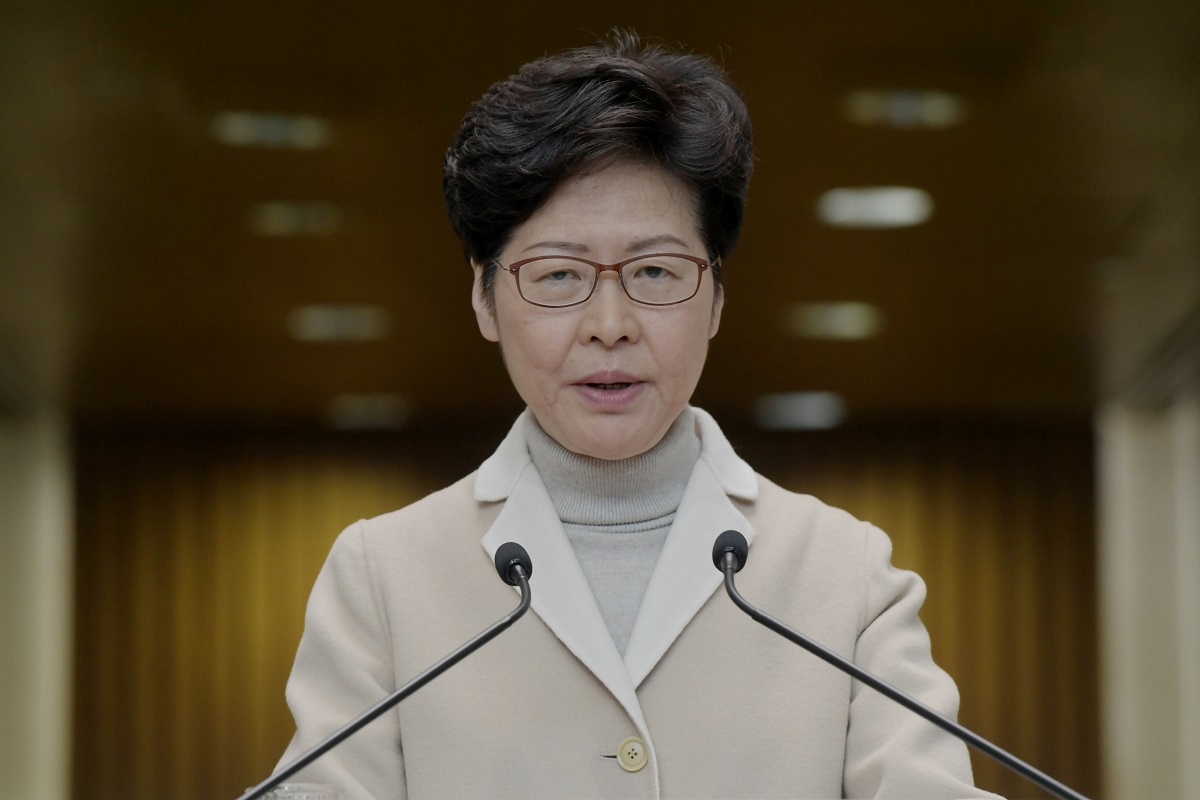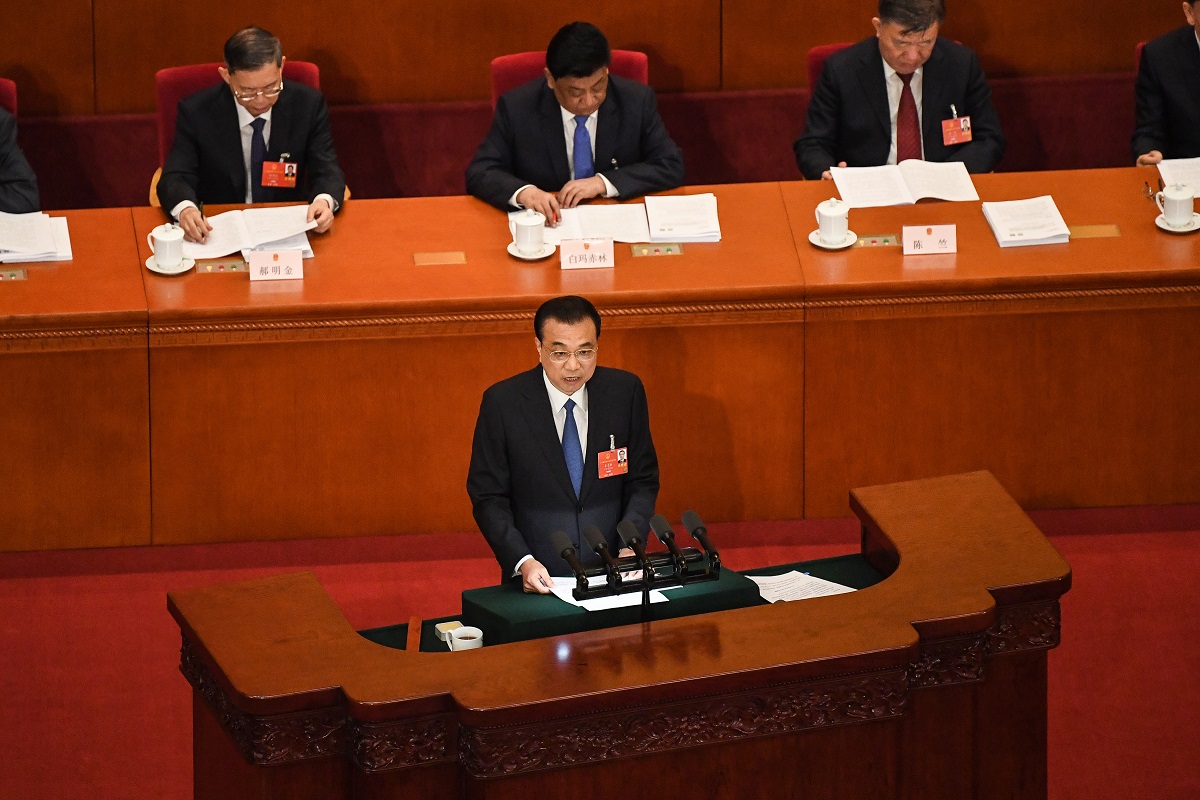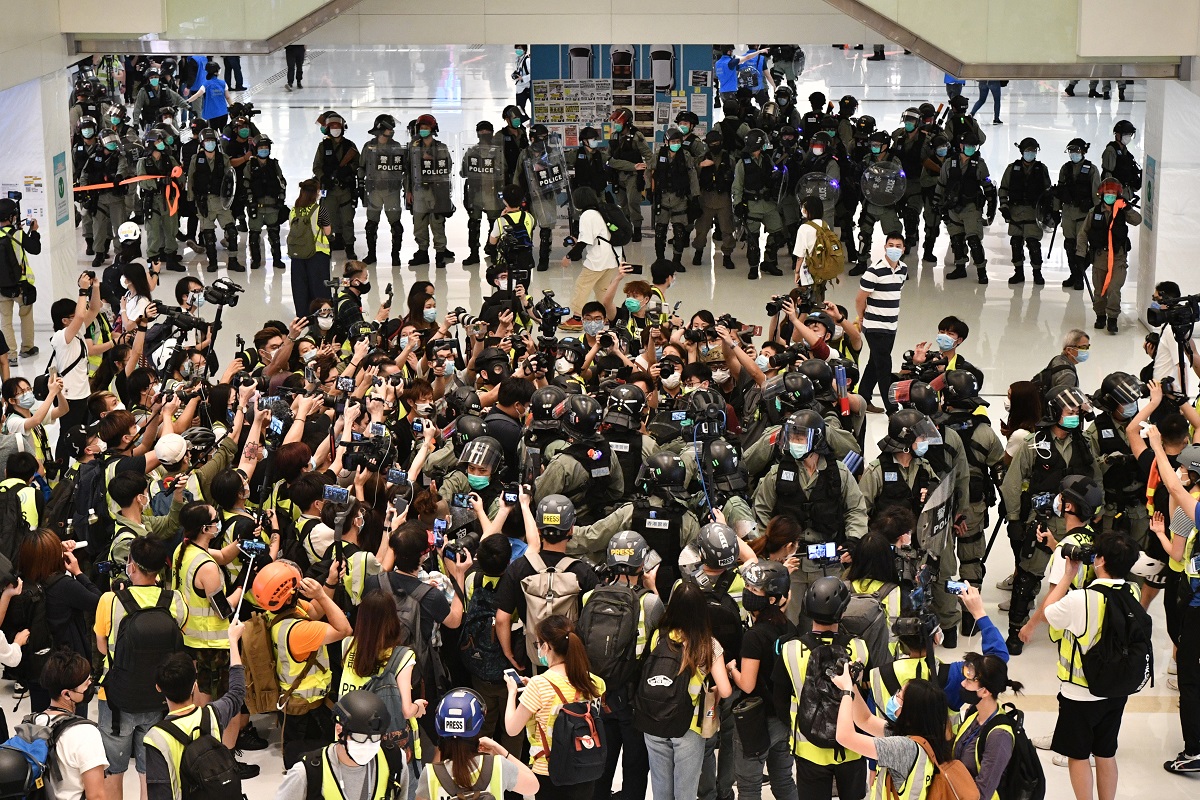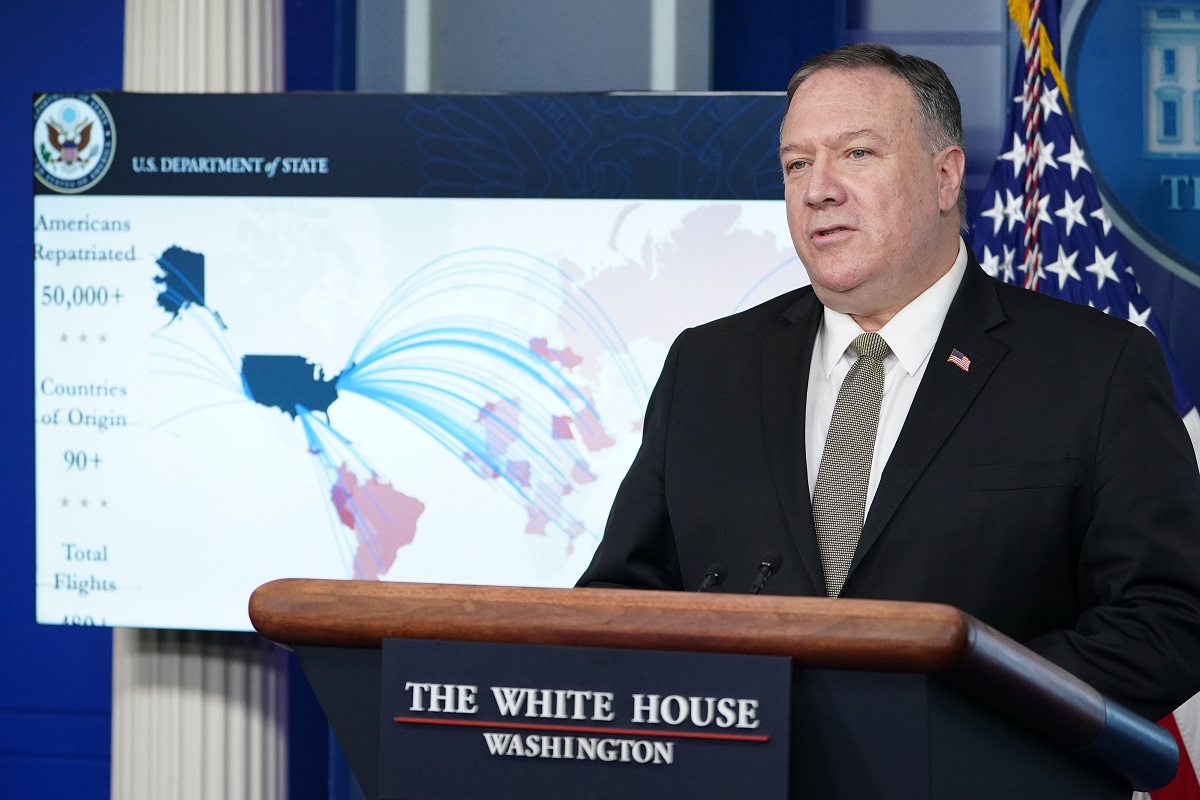Hong Kong leader Carrie Lam urges oppn not to ‘demonise’ security law
The law Beijing is imposing on Hong Kong aims to prevent, stop and punish secession, subversion of state power, terrorism and foreign interference in the city.

The law Beijing is imposing on Hong Kong aims to prevent, stop and punish secession, subversion of state power, terrorism and foreign interference in the city.

The massive violent protests in Hong Kong started last year in June against proposals to allow extradition to mainland China, a move many feared would undermine the city’s judicial independence and endanger dissidents.

Police arrested more than 230 people on Sunday night following protests across the city.

The appeal for flash mobs came after police denied unions permission to stage their traditional Labour Day rallies, citing risks to public health.

The arrests of the 15 were for their roles in the protests in August and October that were part of an anti-government movement that was sparked by the aborted extradition bill.
Others arrested included former lawmakers Martin Lee Chu-ming, Albert Ho Chun-yan, Lee Cheuk-yan, "Long Hair" Leung Kwok- hung and Au Nok-hin, according to legal sources.
As the demonstration gaind momentum, the participants started a fire and blocked some roads in the Tai Ton district, prompting officers to rush to the area soon later at night to disperse the crowd.
The Hong Kong government said in a statement on Thursday that the "degree and extent of violence committed by radical protesters" in the city was "unprecedented".
The 115 people arrested on February 29 comprised 71 men and 44 women, aged 15 to 54.
Protesters threw bricks, stones, bamboo sticks and other hard objects at an officer, who pulled out his gun as he believed his life was in danger, police said.